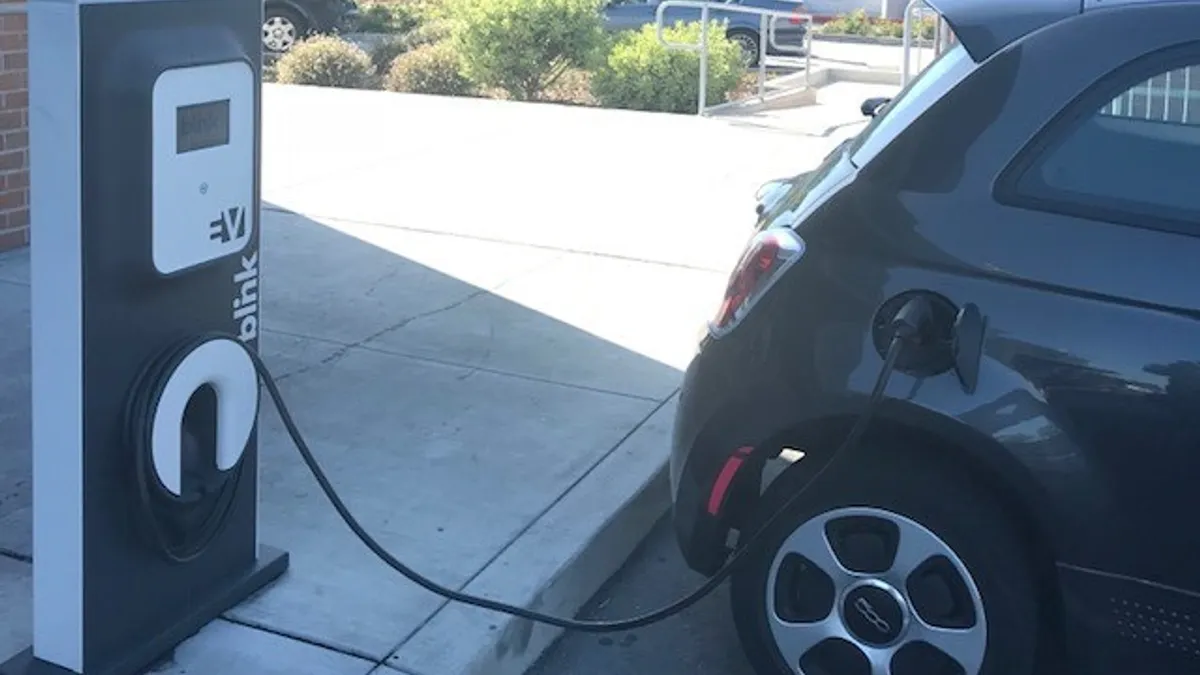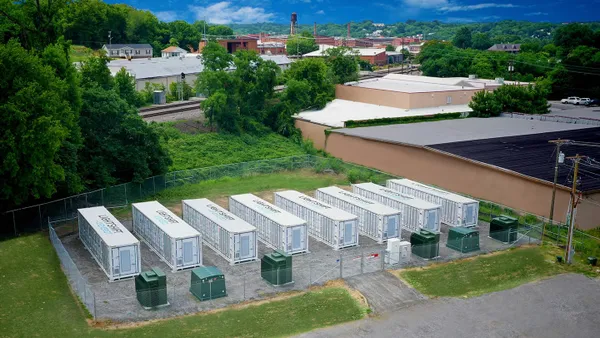Dive Brief:
- Blink Charging announced Monday its partnership with an auto-manufacturing joint venture to expand both electric vehicle (EV) charging coverage and communications capabilities.
- Its partner, Hubject, facilitates data exchanges in the background of charging infrastructure as a joint venture of companies that include BMW Group, Daimler, Siemens and the Volkswagen Group. The partnership will bring more EV charging stations into Hubject's network, while providing "access for Blink to car buyers at the point of sale."
- The partnership will go live next year, the companies say, aiming to provide "seamless charging interoperability" for drivers using Hubject's international multi-network platform and to integrate two-way telemetric communication between vehicles, charging networks and car manufacturers. The efforts could lead to the development of two-way communication capabilities between vehicles, charging networks and car makers.
Dive Insight:
Automakers are developing partnerships across the electric vehicle market, including utilities and third parties, signaling the electrified transportation revolution has begun in earnest.
Through this new partnership, Blink and Hubject are trying to provide an "enhanced experience for drivers across the U.S." by reaching buyers at the time of their EV purchase, the companies said in a statement.
Working with automobile-manufacturers in implementing communication protocols at charging stations could be the first step in implementing "seamless communication between electric vehicles and charging networks without the need for any human interaction during the charging process," the joint venture said.
Ultimately, the connections will allow auto manufacturers to incorporate EV charging data into future designs and help develop transportation as a service business model.
Blink has been particularly active this year. In June, the company announced it will be working with Israeli smart city developer Ya'acobi Brothers Group to combine their technologies. And in May, Underwriters Laboratories approved a fast charging station Blink says can cut charging time for EVs by about two-thirds.
While EVs maintain a small marketshare right now, Bloomberg New Energy Finance believes they will represent 28% of global light-duty vehicle sales sometime shortly after 2025. And last year, the Edison Electric Institute, which represents investor-owned utilities, projected 7 million of the zero-emissions vehicles will be on U.S. roads by 2025.














